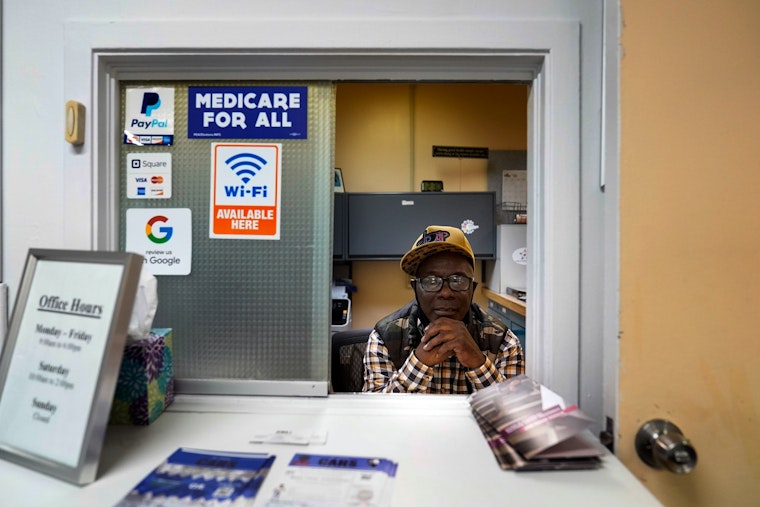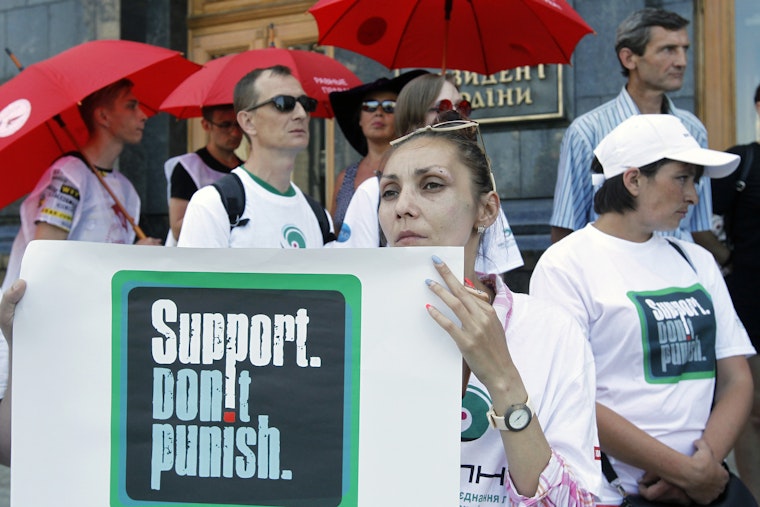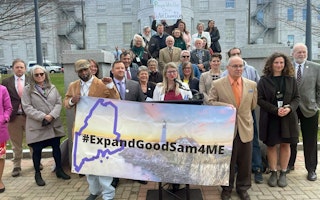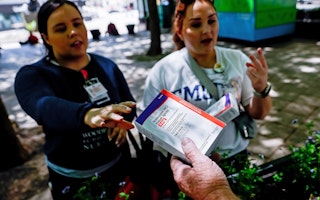How the United States Fueled a Global Drug War, and Why It Must End
By Ann Fordham

June 2021 marks 50 years since Richard Nixon declared “drug abuse” the United States’ “public enemy number one.” It is a grim anniversary that resonates not only in the United States but all over the world. The global drug war is an unmitigated human rights disaster, well-documented in painstaking detail. As U.S. domestic drug policy reform gains momentum, it is time the United States makes a concerted effort to de-escalate the failed, harmful, and disastrous global war on drugs.
There is reason for hope. After a century as the self-appointed leader of punitive drug enforcement—and billions wasted on the effort—U.S representatives struck a decidedly different tone on the global stage at the UN Commission on Narcotic Drugs. Regina LaBelle, acting director of National Drug Control Policy, gave the United States national statement in April, noting that “we can’t confront today’s challenges with yesterday’s methods; we have to modernize and make sure our approaches are responsive to current trends.” She went on to highlight the Biden-Harris Administration’s Statement of Drug Policy Priorities for Year One and emphasized the administration’s focus on “ensuring racial equity and promoting harm reduction efforts.”
The Biden-Harris Administration intends to make a bold shift away from the drug war at home—especially in the face of an unprecedented overdose crisis that has seen more than 70,000 Americans die from a drug overdose in 2019 alone. Their commitment to scaling up harm reduction and evidence-based drug treatment and to ensuring racial equity is crucial and long overdue. It will require a huge and sustained effort to undo decades of harm, especially to communities of color. However, when it comes to U.S. foreign policy, these progressive approaches need to translate into something more than pleasing rhetoric.

A Half-Century of Escalating a Global War on Drugs
Nixon served to escalate and embed draconian, repressive, and militarized drug control globally. In 1973, he established the Drug Enforcement Administration to unite all law enforcement agencies for an “all-out, global war on the drug menace.” In doing so, Nixon was simply recycling a highly successful, tried and tested strategy. Trot out the narrative that drugs are evil and villainous in order to demonize and punish certain groups, such as racial and ethnic minorities, and to legitimize questionable policies, including invasive military action overseas.
This playbook was written long before Nixon. Colonial powers used it to control and sanction Indigenous populations in conquered lands and deny their ancestral practices, only to tolerate such customs if they could profit from them. But the United States promoted and employed this strategy so effectively that its legacy has endured to this day, manifesting itself in disproportionate policing and mass incarceration, populist strongman rhetoric that quashes political dissidence, and inflated law enforcement, prisons, and military budgets at the expense of investment in health and harm reduction.
Ameliorating discriminatory drug policy at home and abroad will require acknowledging the deeply racist sentiment enshrined in the 1961 Single Convention on Narcotic Drugs—the foundational treaty of the international drug control regime. With significant United States influence, the Convention starkly illustrates this racist impetus by essentially condemning ancestral and traditional uses of the coca leaf, opium, and cannabis into extinction by mandating signatories to abolish such practices. This fundamental tension between Indigenous rights and the 1961 convention remains unaddressed today.
Concerning harm reduction, successive United States governments have not only failed their own citizens but have aggressively exported an anti-harm reduction agenda. This has been through both policy formulation at the UN, as well as via the ban on the use of federal funds for needle and syringe programs which put limitations on United States funding for the global HIV response. This deep historical resistance to harm reduction is why LaBelle’s intervention at the convention this year signals a profoundly different approach from the United States.

A Responsibility to Uplift Reform
Within the United States, the momentum for drug policy reform continues to accelerate. At least one in three people in the United States live in states where the recreational use of cannabis is legal. Several bills have been submitted to Congress to legalize cannabis and to decriminalize all drugs at the federal level. The focus on ensuring social justice, racial equity, resisting corporate capture, and reparations for communities harmed by the war on drugs is a more recent and very welcome phenomenon. In addition, harm reduction now features among the top drug policy priorities of the new administration, with a new $30 million fund dedicated to scale-up services.
The winds of change are blowing in the United States. But it would be a travesty for the United States to promote progressive reforms at home while imposing repressive and inhumane measures elsewhere.
As the arch-enforcer of the war on drugs, the United States now has the moral and political responsibility to proactively promote drug policies that are grounded in health and social justice, and above all in human rights.
This would mean moving away from providing international funding and political cover for the harsh enforcement of disproportionate drug laws, the militarization of drug control, aerial spraying and forced eradication, discriminatory policing practices, forced treatment programs, drug courts, and mass incarceration.
But it also means promoting positive reforms, discussing reparations for communities that have suffered the brunt of repressive drug control to the international level, fully recognizing the ancestral rights of Indigenous communities worldwide, and endorsing and funding life-saving harm reduction services both at home and abroad. These are not unrealistic fantasies, but real and concrete policies that are already being adopted in some U.S. states, often with overwhelming popular support.
On June 26, 2021, thousands of activists around the world mobilized for the 9th Support. Don’t Punish Global Day of Action and rejected the traditionally self-congratulatory message of the UN’s World Drug Day. They united with one clear, strong, and urgent message: it is time to end the war on drugs. Fifty years after Nixon’s administration strengthened heavy-handed international prohibition through UN drug treaties, with devastating consequences, the current U.S. presidential administration has an opportunity to begin to right the wrongs of history and start a real conversation on dismantling the global prohibition regime.
The International Drug Policy Consortium is a grantee of the Open Society Foundations.
Ann Fordham is the executive director of the International Drug Policy Consortium.


